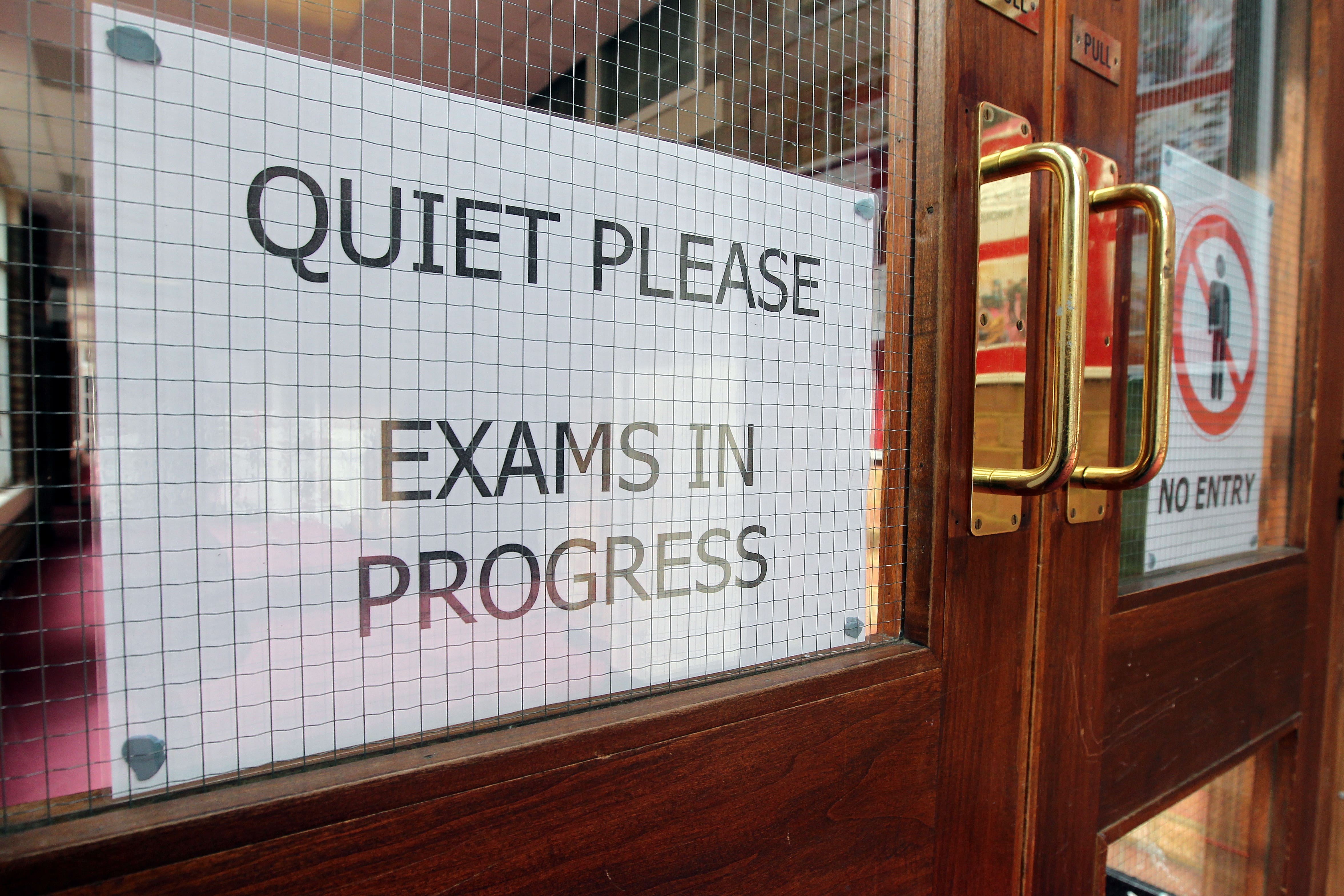Primary school pupils should not have to sit ‘high-pressure’ tests – union
The current curriculum and assessment system is ‘outdated and unfit’, the leader of the largest education union in the UK has said.

Your support helps us to tell the story
From reproductive rights to climate change to Big Tech, The Independent is on the ground when the story is developing. Whether it's investigating the financials of Elon Musk's pro-Trump PAC or producing our latest documentary, 'The A Word', which shines a light on the American women fighting for reproductive rights, we know how important it is to parse out the facts from the messaging.
At such a critical moment in US history, we need reporters on the ground. Your donation allows us to keep sending journalists to speak to both sides of the story.
The Independent is trusted by Americans across the entire political spectrum. And unlike many other quality news outlets, we choose not to lock Americans out of our reporting and analysis with paywalls. We believe quality journalism should be available to everyone, paid for by those who can afford it.
Your support makes all the difference.Primary school pupils should not have to sit “high-pressure” tests and there should be fewer end-of-course GCSE and A-level exams, a teaching union has urged.
The National Education Union (NEU), the largest education union in the UK, has also called for the English Baccalaureate (EBacc) – a government performance measure of schools which focuses on five subjects at GCSE – to be scrapped.
In its submission to the Government’s call for evidence for the curriculum and assessment review, the NEU said pupils should be given more time for PE and outdoor learning, as well as lessons on climate change.
The consultation on the review in England – which is being led by education expert Professor Becky Francis – closed on Friday.
An interim report will be published early next year, with a final report and recommendations due in the autumn.
The NEU’s submission to the review said: “In primary, all high-pressure government testing should end and good practise from the early years should be better considered.”
Currently, pupils in England sit national curriculum tests (known as Sats) in maths and English in Year 6. These results are published and often used in holding primary schools to account.
In addition, children take a phonics check in Year 1 and a times table check in Year 4.
The education union added: “In secondary and post-16, a shift towards multi-modal assessment must take place and the damaging, unevidenced default of exclusively terminal exams for GCSEs and A-levels must end.”
It comes after Colin Hughes, chief executive of exam board AQA, suggested that the number of exam papers at GCSE could be scaled back in some subjects – like maths – to reduce the burden.
Preparation for GCSEs dominates far too much of secondary school life and the intense exam factory culture that has been created isn’t working for students or teaching staff
Mr Hughes told PA news agency that he also wanted the Government to review GCSE English as teachers have said it is uninspiring.
The NEU has joined headteachers’ unions in calling for the EBacc to end, and it said reforms must ensure that all pupils are granted access to the arts.
The EBacc – which was introduced as a measure in school performance tables in 2011 – aims to ensure pupils take English, maths, science, a humanities subject and a language at GCSE.
In December last year, a House of Lords committee called for the EBacc to be axed as it raised concerns about the decline in creative and technical subjects.
The NEU said: “Results of tests are misused for school accountability, leading to damaging, perverse consequences to curriculum breadth and student and staff wellbeing.”
Daniel Kebede, general secretary of the NEU, described the current curriculum and assessment system as “outdated and unfit” for what young people need.
He said: “It is accountability which is driving assessment decision-making and this isn’t the right way round.
“The EBacc should be ended because of its limiting impact on young people’s curriculum options.
“Preparation for GCSEs dominates far too much of secondary school life and the intense exam factory culture that has been created isn’t working for students or teaching staff.”
Last week, the Association of School and College Leaders (ASCL) called for students to be allowed to spread GCSE papers over two years to reduce the burden of assessment at the end of Year 11.
Meanwhile, the National Association of Head Teachers said there was an “urgent need” to reconsider statutory tests on phonics, times tables and grammar and punctuation in primary schools in England.
A Department for Education spokesperson said: “High and rising standards are at the heart of this government’s mission to break down barriers to opportunity, and a cutting-edge curriculum is central to this.
“We are determined that the curriculum and assessment system will change so that every child has the tools they need to achieve and thrive.
“Through our review, led by Becky Francis, we’ll consider both what works and reform where necessary to raise standards and create a system that delivers for every young person.”